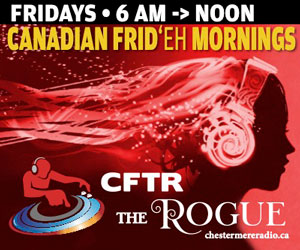Your humble narrator went on one of those romantic weekend getaways to Vancouver last weekend. It was all going well until my lady friend found out that we couldn’t go to the ballet because I had already booked us on a walking tour of 3 different craft breweries.
She had trouble understanding why these 3 breweries would be any different than the countless other brewery tours she has had to endure. I guess I’ll never understand women!
Much to my giddy delight, I saw an ancient style of brewing revived at Green Leaf Brewing in North Vancouver, using the so-called hot stone method.
Prior to the beginning of the Bronze age around 3600BCE, civilization was limited to tools made from wood and stone, which meant that beer was brewed in wooden barrels, rather than the steel vessels in use today.
As you might imagine, the ancient brewmasters were not able to put their wooden barrels over a fire to boil the beer, so they superheated large stones in a fire, then threw the hot stones into a wooden barrel filled with water and barley to initiate the boil.
Beer tasted much different in those days, as yeast had not yet been discovered. All fermentation was spontaneous from wild airborne yeasts, which made it very difficult to maintain consistent flavours or alcohol levels from batch to batch.
At the time, the entire fermentation process was poorly understood, and remained so until the discovery of yeast in 1857. Prior to that time, fermentation was largely trial and error, with a healthy dose of luck and prayer.
Brewing with hot stones pretty much died out in the Bronze Age, as the advanced civilizations of the day were able to craft bronze vessels that could be placed over a fire to boil.
The obvious danger of handling large red-hot stones was likely another motivator for the ancient brewers to take advantage of technological advancements in metallurgy, so it is not entirely unexpected for the old method to have disappeared.
In a nod to history, the adventurous brewers at Green Leaf Brewing are heating large blocks of granite, then adding them to the brew kettle to boil the wort, and are calling the result Burning Rock Ale, which I eagerly sampled in the tasting room. The malts had been caramelized by the hot rocks, similar to an English Brown Ale, and the mild hoppiness made it highly sessionable.
A few other courageous brewers across the country have hopped on the same bandwagon, with Calgary’s own Big Rock Brewing running off a small seasonal batch of stone-fired beer a couple of years ago.
Looking east to the Maritimes, Moncton’s own Pump House Brewing recently tried their hand at their own stone-fired beer. Using a special type of locally sourced sandstone that was resistant to shattering at high temperatures, Pump House made a limited run of Stonefire beer for their 15th anniversary celebration, made in the style of a German Steinbier.
The hot rocks tend to scorch the barley malts when first immersed, which leads to a smoky finish with hints of burnt caramel, which gives us a hint of what medieval beer might have tasted like.
Unlike modern brewing methods, throwing in the hot stones into the brewing vessel will scorch and caramelize some of the malted barley in the brew, leading to a unique smoky flavour with toffee undertones.
While we have had a handful of brave Canadian craft brewers experiment with this style, the modern pioneers came out of Germany, where stone-fired beers have a long and rich history, and enjoyed great popularity in the middle ages. There were even a few never-say-die brewers in Austria and Germany that kept producing Steinbier with hot rocks until the beginning of the 20th century, when it pretty much died out due to the lower costs and reduced danger of boiling in steel kettles without handling the burning stones.
These are exciting times for the modern beer nerd, with intrepid craft brewers willing handle red-hot boulders just to satisfy their longing for a lost style of beer. Luckily, your humble narrator brought a case home from Vancouver, so I plan to get into the medieval spirit by hoisting a flagon of ancient ale while I binge-watch Game of Thrones on Netflix!








